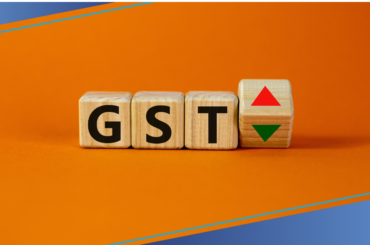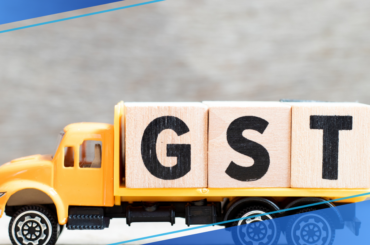When the government had announced the Budget for FY 2016-17, they had also announced various tax incentives that were related to the levy of Income tax on startups. These were then enhanced further in 2017-18, to make it easier for startups to function. In this article, we will understand the various Income tax rules and regulations that apply to startups in India, as of 2019.
How is income tax computed for startups?
It is crucial to understand that Income tax is levied on the earnings and not the sales revenue of a startup. This is fairly good news for startups as operational costs can often make it harder for small companies to have a great profit margin.
The earnings of a startup are calculated on the basis of sales revenue minus expenses and depreciation. This means that any expenses that are incurred that help with the sale of goods or services and any reduction in the value of the assets that have been used in the business are subtracted from the total value of the items or services that have been sold. The remaining figure is the total profit earned during the year and this is the taxable amount.
Apart from this, since it can be challenging for smaller startups to keep track of the expenses, sales, depreciation and invoices in their early stages, the government has also introduced the Presumptive Taxation Scheme.
As per this scheme, a startup having turnover of less than Rs 2 crore in a financial year can opt to be taxed presumptively and disclose its income as below:
- 50% of value of services provided, applicable to service providers only
- 8% of non-digital transactions or 6% of digital transactions, applicable to the supplier of goods only
It is important to note that this scheme is applicable only to HUFs and individual proprietors, and not to companies. Income tax will be charged on the income disclosed under this scheme by the taxpayer.
Understanding income tax for startups
The first step is to compute the income, which can be carried out via the means listed above. The second step is then to understand tax liability. There is a specific schedule of taxes that businesses and individuals need to refer to in order to know their tax liability, as explained below:
| Schedule of Income Tax Rates | |
| Type of business entity | The applicable income tax |
| Proprietorship or individual | Taxes apply as per the income tax slab rates |
| Partnership/ LLP firm | 30% of the income |
| Indian company | 25% of the income |
| It is crucial to file income tax returns before the due date using the forms mentioned below: | |
| Income that has been computed under the presumptive taxation scheme | ITR 4 |
| Income computed by calculating the revenue, expense and depreciation | ITR 3/ ITR 5/ ITR 6/ ITR7 |
Generally, the last date for filing income tax returns is 31st July or 30th September depending on the type of taxpayer. These dates are subject to change depending on the notifications issued by the government.
What tax incentives apply for startups?
While announcing the Budget in 2016, the government had announced some incentives that apply for startups. Since then, these incentives have been revised to make them more inclusive and encourage startup operations in India.
One of the main ones is the 100% tax rebate as per Section 80IAC for the startups that are considered eligible for the same. Additionally, startups can enjoy this 100% rebate for three consecutive years. The company can choose these 3 consecutive years at its own discretion from any of the first 10 years.
This deduction will be available to eligible start-up if the total turnover does not exceed Rs 100 crore in any of the years beginning from the year of its incorporation.
However, it is important to note that if a company wants to claim these benefits, they have to comply with the following rules:
- They must maintain separate account books for their eligible businesses
- They must ask a Chartered Accountant to audit their books
- They must use form 10CCB to furnish their audit report along with their ITR
What startups are eligible for these tax incentives?
India is a country that is filled with startups, but that does not mean that every single startup can enjoy these rebates. They must fall under the bracket of an eligible startup.
In order to be an eligible startup, the following conditions must be met:
- The company needs to be incorporated either as a Company or as an LLP
- The company must be incorporated anytime between 1 April 2016 and 1 April 2021 (as per the Finance Act of 2018)
- The company must not have a total turnover that exceeds Rs 100 crores
- The company has to be certified by the Inter-Ministerial Board of Certification as an eligible business.
- An eligible business is generally defined as one that involves development, innovation, deployment, or the commercialization of products, services, or processes that are either driven by intellectual property or technology
- The company cannot be one that has recently been formed by splitting up an existing company or business
If your startup meets these requirements, you can certainly avail the benefits that have been introduced to facilitate Start-Up India.
These tax incentives and rules have been introduced by the Government of India in order to facilitate entrepreneurship in the country. With such high potential, India has always been a great marketplace, and it is time for young citizens to capitalize on the same.
By pursuing their own businesses and offering innovative solutions, they not only stand a chance to earn far greater revenues than they would if they were in a standard job but also improve the general job market of the country.
If you have recently launched your business, you should identify the three years that you want to remain tax-free with care! This can be a huge financial boon for you!
Also read: Understanding Angel Tax for Startups

![Income Tax Rules & Regulations for Startups in India [2019] income tax rules startups 2019](https://d6xcmfyh68wv8.cloudfront.net/learn-content/uploads/2019/08/income-tax-rules-startups-2019-770x515.png)



